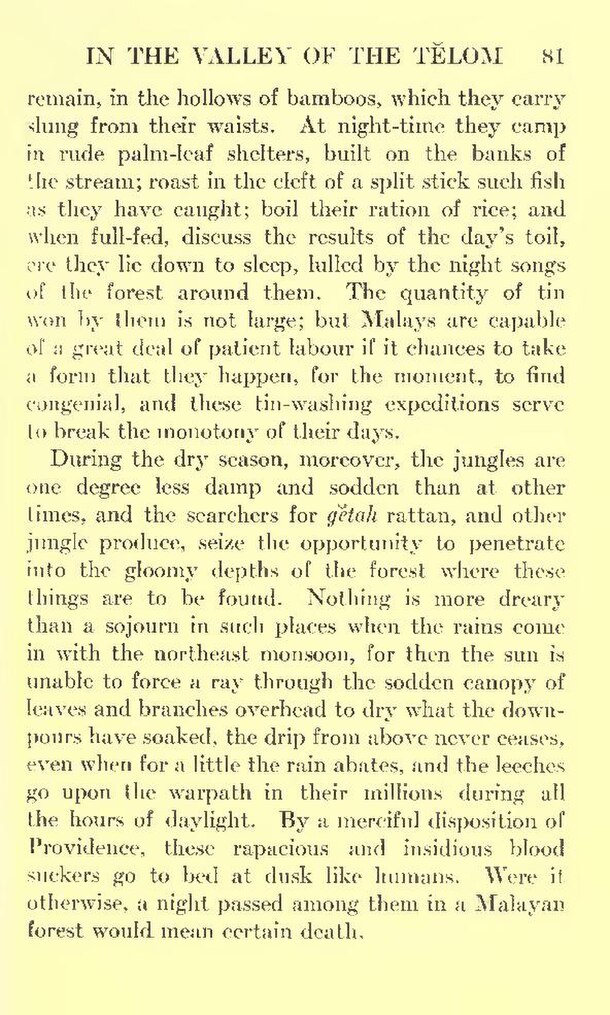remain, in the hollows of bamboos, which they carry slung from their waists. At night-time they camp in rude palm-leaf shelters, built on the banks of he stream; roast in the cleft of a split stick such fish as they have caught; boil their ration of rice; and when full-fed, discuss the results of the day's toil, ere they lie down to sleep, lulled by the night songs of the forest around them. The quantity of tin won by them is not large; but Malays are capable of a great deal of patient labour if it chances to take a form that they happen, for the moment, to find congenial, and these tin-washing expeditions serve to break the monotony of their days.
During the dry season, moreover, the jungles are one degree less damp and sodden than at other limes, and the searchers for gĕtah rattan, and other jungle produce, seize the opportunity to penetrate into the gloomy depths of the forest where these things are to be found. Nothing is more dreary than a sojourn in such places when the rains come in with the northeast monsoon, for then the sun is unable to force a ray through the sodden canopy of leaves and branches overhead to dry what the downpours have soaked, the drip from above never ceases, even when for a little the rain abates, and the leeches go upon the warpath in their millions during all the hours of daylight. By a merciful disposition of Providence, these rapacious and insidious blood suckers go to bed at dusk like humans. Were it otherwise, a night passed among them in a Malayan forest would mean certain death.
